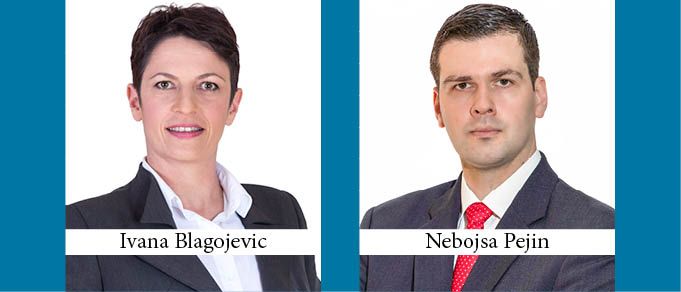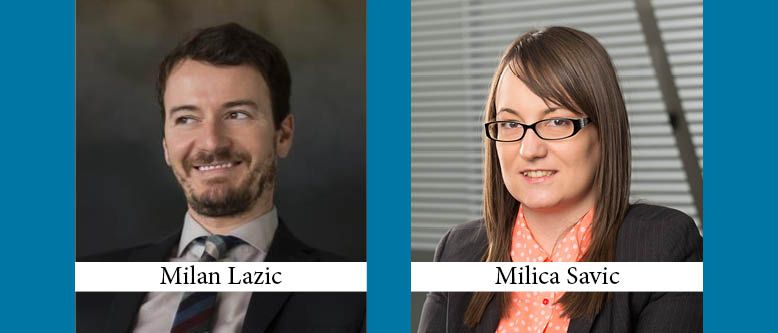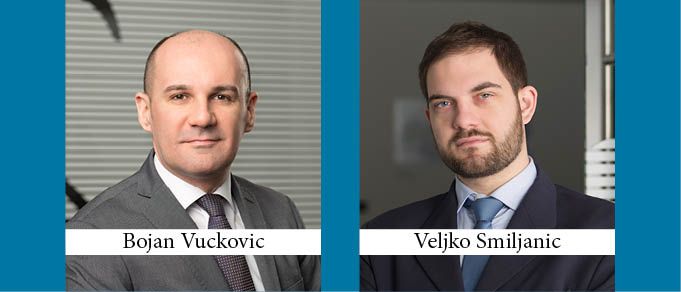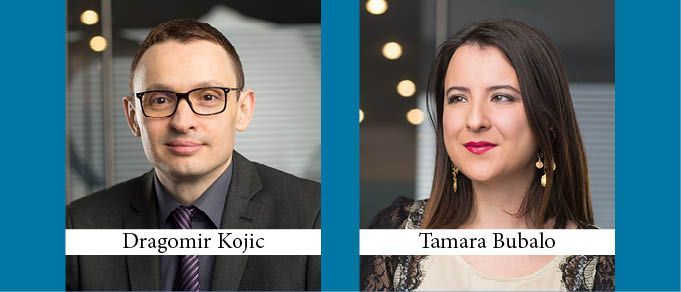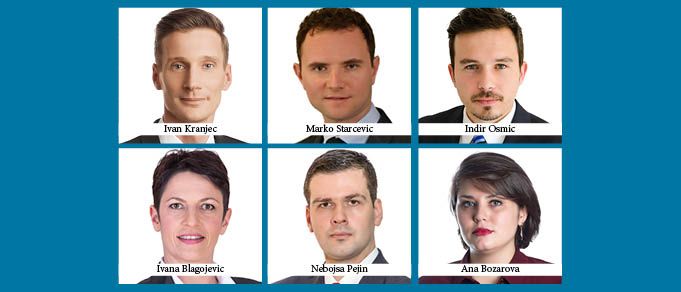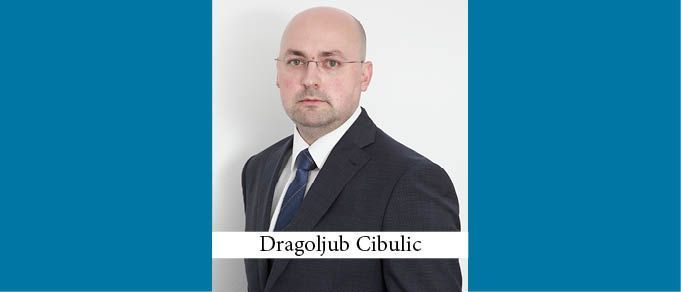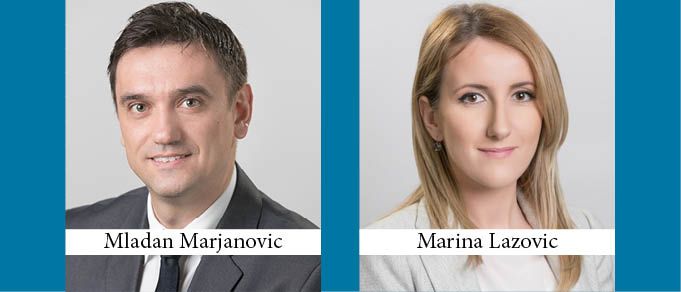In The Corner Office we ask Senior and Managing Partners across Central and Eastern Europe about their unique roles and responsibilities. The question this time around: “What is the one skill, ability, or characteristic that fresh law school graduates in your country most commonly lack?”
Looking Back on Five Years of Dramatic Change In Serbia
In the last five years significant changes have occurred in the Serbian business and political environment. This has been a time of dramatic change – with the general goal of transforming the position and the image of Serbia both regionally and globally, strongly affirming a pro-EU stance and making Serbia much more attractive for foreign investment. Obviously, both of these goals are interconnected because improving the image of a country brings more investments, and foreign investors generating profits in Serbia improves Serbia’s global image.
The Serbian Legal Market: The Past Five Years
The Serbian legal market has changed rapidly over the past five years. After less than 30 years of existence in this form, our legal market is still relatively young and its pioneers emerged in the early 1990s. Nevertheless, it is also a dynamic market and brings change every year, especially due to the European Union accession negotiations and additional harmonization of the country’s legislation with EU legislation. On the other hand, frequent changes in law have become a general rule, providing more work for law firms, but also bringing a high level of uncertainty for their clients.
A Transformation in the Balkan Legal Industry
A transformation of the legal profession is happening globally, and its effects are also felt, slowly but surely, in the law firms of Southeast Europe. Due to the changing expectations concerning the quality, speed, and commerciality of services, we are seeing a move towards even more client-oriented solutions. Traditional sectors are being replaced with emerging industries, and where we previously had slow processes, with low profit margins, we see value being generated at lightning speeds. Also, a new generation that entered the workforce recently is slowly imposing their own values and approaches, necessitating changes in structure and the values of traditional legal practices.
The Winter Metamorphosis of Serbia’s Tax System
The beginning of 2019 will mark the start of a major transformation of the Serbian tax system, bringing new and exciting opportunities for companies who do business or wish to invest in Serbia, but also bringing potential challenges concerning the practical application of new tax rules.
The Evolution of NPLs in Serbia
The NPL market in Serbia traditionally knows of only two concerns, embodied in the numbers 48 and 204. Although you would assume that numerology had something to do with this assertion, the backstory is actually a lot more appealing.
Designing a Competition Enforcement System: The Imperative of Credibility
It is not uncommon for post-communist societies to wrestle with the idea of competition enforcement. Executives of a more old-school bent are often confounded by having something which once was common market practice, sometimes even mandated by the state, now scrutinized and considered a serious infringement of law. This is why competition advocacy is a crucial tool for relatively inexperienced competition authorities – it would hardly be fair to beat upon market players legitimately unaware of changes to the modus operandi.
Inside Insight: Interview with Miljan Malovic of Banca Intesa
Miljan Malovic is the Head of the Business Legal Advisory Office of Banca Intesa Belgrade. He graduated from the Faculty of Law at the University of Belgrade in 2001, and joined Banca Intesa in 2006.
Amendments to the Planning and Construction Act – No Break in Reforms
The Serbian Ministry of Construction, Transportation and Infrastructure has initiated the process of amending the country’s Planning and Construction Act, with the aim of boosting the construction industry and making the legal environment in the sector more predictable, reliable, and investor-friendly. The Serbian construction law has been revolutionized the last few years, with the introduction of e-permits and the unclogging of many sclerotic procedural labyrinths, so the readiness of the Serbian government to continue with the reforms and modernization is generating new excitement in the construction sector.
Guest Editorial: A Change in the Legal Narrative – Past Fears and New Opportunities
Until a few years ago, the narrative within legal practices, as in most service industries, focused mainly on austerity, small growth numbers, and the crises. Most legal practitioners feared an uncertain future and all the risks it held, including evolving client expectations, financial pressure, and the long-term impact of the global economic crisis.
Trade Secrets in Serbia
As Serbia is gearing up for EU accession, harmonizing with EU legislation and business practices becomes not only mandatory, but also a market necessity. Although there are discrepancies between business practices in Serbia and in the EU, one thing seems to be unanimous: local businesses, just like their international counterparts, think ahead when it comes to securing their assets. This applies to every type of business, but it is prevailingly visible in local medium-sized to large businesses which predominantly handle and/or deal with IP portfolios. Nowadays, in the ever-evolving digital world, where almost information is at the reach of one’s hand – even to those located in remote corners of the world – attention and focus are being switched to ensuring the adequate protection of trade secrets. This process is happening in Serbia as well.
Now or Never: The Looming GDPR Deadline
The European Union’s General Data Protection Regulation is, according to the EU-hosted GDPR website, “the most important change in data privacy regulation in the past 20 years.” The Act, which was approved by the EU Parliament on April 14, 2016 and will become fully effective on May 25, 2018, was designed “to harmonize data privacy laws across Europe, to protect and empower all EU citizens’ data privacy, and to reshape the way organizations across the region approach data privacy.”
Private-Public Infrastructural Development of Construction Land
Implementation of large-scale real estate development projects almost always requires the simultaneous development of new or upgrades to existing public infrastructure necessary for the unimpeded use of the main project. Back in the old days, real estate development projects suffered, from time to time, from slow public infrastructure development since the relevant public authorities either had no interest in or had no available funds to develop the missing infrastructure.
A Night of Celebration at CEE Deal of the Year Awards Banquet in Prague
The winners of the 2017 CEE Deal of the Year Awards were announced at the first ever CEE Legal Matters Deal of the Year Awards Banquet last night in Prague. The biggest smiles in the joyous and music-filled celebration of CEE lawyering, perhaps, were on the faces of Partners from Avellum and Sayenko Kharenko, which, along with White & Case and Latham & Watkins, won the award both for Ukrainian Deal of the Year and CEE Deal of the Year for their work on the 2017 Ukraine Eurobond Issue (a story initially reported by CEE Legal Matters on October 2, 2017).
Top Six Tax Topics Across SEE
Slovenia: Fine-Tuning of the Tax System
In the beginning of 2018, Slovenia introduced several minor and mainly administrative changes to its tax legislation, mostly addressing and resolving inconsistencies in the legislation that had been detected in practice.
Expat on the Market: Interview with Patricia Gannon of Karanovic & Nikolic
Patricia Gannon is a founder and Senior Partner at Karanovic & Nikolic, where she focuses primarily on the management, business development, strategy, and expansion of the firm. Gannon qualified as a Solicitor in Ireland and after a short period working at the European Commission in Brussels she moved to Serbia and founded the firm. She is a committed advocate of corporate philanthropy, and was amongst the founding members of the Serbian Charity Forum, an umbrella forum of leading foundations in the country.
Upcoming Changes to the Serbian Renewables Support Scheme and Energy Community Involvement
The Serbian Minister for Mining and Energy recently stated that Serbia will manage to fulfill its obligation and reach the target of 27% of total energy consumption from renewables by 2020. The statement followed a stream of positive news in relation to development of several large-scale wind power projects in Serbia, such as Cibuk I, Kovacica, and Alibunar.
Bankruptcy in the Spotlight in Serbia
The past decade was rather dynamic in terms of the development of the legal framework for bankruptcy in Serbia, as, since its adoption in 2009, the Bankruptcy Law has undergone several amendments, most recently in late 2017, designed to improve the efficiency of the bankruptcy proceedings.





